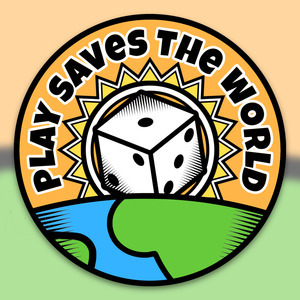Episode 33
Moltmann's Theology of Play Part 1
June 25th, 2023
1 hr 17 secs
Tags
About this Episode
REMINDER ABOUT OUR CONTEST “SHOW US YOUR BOARD GAME FAITH” # BOARDGAMEFAITH on IG, by June 30th 2023! Cool prizes!
Like us, subscribe to us, we are on YouTube and podcast networks, and check out our newsletter! And wash our cars and trim our hedges!
Jürgen Moltmann, born 1926, German Reformed theologian who is Professor Emeritus of Systematic Theology at the University of Tübingen and is known for his books such as the Theology of Hope, The Crucified God, God in Creation, and Theology of Play.
Drafted 1943 to fight for Nazi Germany, surrendered in 1945 and was a POW in Belgium, became a Christian, and then was a POW in Scotland and England, then went home in 1948, earned a doctorate from the University of Göttingen in 1952, was a pastor and a professor.
Today, the first major section of the book, which is a "Holy Grail" of theological game studies out now out of print, pages 1-14. It’s dense, bruh! From another time period.
Theme 1: Is it moral to play games in a hurting world?
Psalm 126: When the Lord restored the fortunes of Zion, we were like those who dream. Then our mouth was filled with laughter.
Happiness, joy, and laughter, are all connected to FREEDOM. A freedom in joy and play.
Human Beings are “the first liberated being in creation” – Moltmann is using a phrase from Herder, an 18th century German poet and philosopher.
“These sketches seek to reassert the value of aesthetic joy against the absolute claims of ethics.”
Not a laughter that is forced or from despair, or from mocking others, or cynical, or snobbish sarcasm. But true laughter.
But is it moral to laugh with joy in a hurting world?
"Does it not seem that the...revival of play...in the affluent West is forced and outright unnatural as long as there are...hells on earth? Homo ludens and the redemption of our right to happiness, fun, and games appear to be fine--but for those who can afford them. To all others they must appear in bad taste." (2)
"My commitment to be miserable does nothing to relieve the suffering of others. If anything, it increases the amount of suffering in the world."
Moltmann responds to the morality of gaming in a suffering world by maintaining that this book is not addressed to those who ignore suffering, but to those who are in the midst of it or who are on the precipice of despair because of it.
"When...I dare to talk about the enjoyment of our freedom and our pleasure in playing games, I am not addressing myself to those who are incapable of feeling.... I am turning to those who are mourning and suffering with others, who are protesting and feeling oppressed by the excess of evil in their society, who are weighed down by their own impotence so that they are ready to despair or seek to forget." (2)
Playing games is not about the denial of suffering, but the transformation of it.
Theme 2: Are games about freedom, or oppression?
Is this only for the privileged?
Is laughter a distraction from suffering, or a form of liberation?
“Religion is the opiate of the people" (Marx), _panem et circenses _bread and circuses for the ancient Romans. Does this apply to games too?
Are games a way to make us better workers, we forget our misery if we have some distraction? Like_ Hunger Games_ were for the districts and Panem.
Moltmann then argues that both political revolutions and theological reformations ultimately fail to bring true freedom. He is critical of both the right and the left on this point.
In the preface, he is critical of the "absolute claims of ethics" by both conservative "pharisees" and revolutionary "zealots."
He is also critical of how such movements use games and play as "relief valves" for the masses, to allow them a little simulation of freedom so that they are more willing to submit to control again.
The game Trajan is a great example of this. You have to meet your people's needs or you are punished, and the 3 needs are bread, religion, and games.
Games are seen as a means to end: they help us to "recharge" and "blow off steam" so that we can go back to being good workers again, and so that we can submit to the prevailing cultural ethic again. This is a deficient view of games. Yet, Moltmann says that even a deficient view of the value of games is better than not valuing games at all.
Moltmann maintains that real revolutions to liberate humanity have to begin not be changing how we work and organize ourselves, but changing how we play. (12)
He says we do not play games to escape the past and present (as society would have believe), but to empower us to envision a better future. Real games are about the future, not the past.
How ? "Games...afford us an opportunity to experiment with free expression and with new human relationships." (13)
Games and play also help to free us the control of fear.
How have we personally experienced this? How have games helped to anticipate a better future for us?
